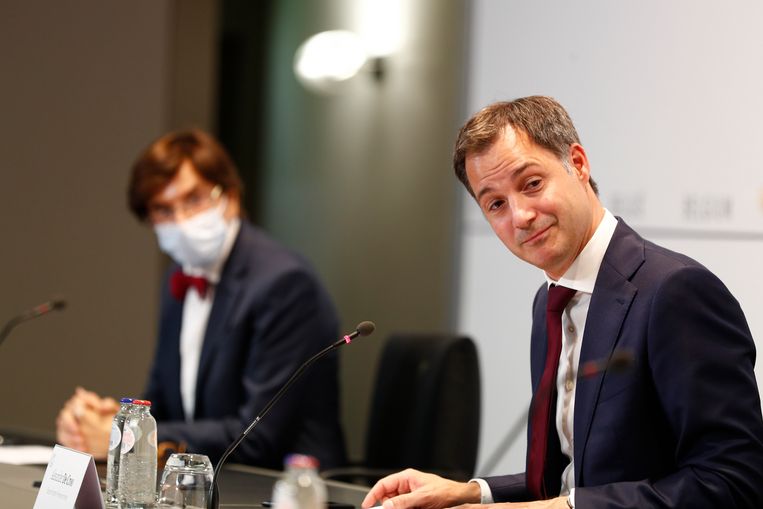Belgium’s Consultative Committee will meet again this afternoon to discuss which remaining coronavirus restrictions are still necessary and look into expanding the Covid Safe Ticket (CST) beyond its use for events.
The Committee will meet from 2:00 PM, and a press conference will be held afterwards, the cabinet of Prime Minister Alexander De Croo confirmed to The Brussels Times.
As Belgium's infection figures are decreasing and Flanders even turned orange on the European coronavirus map again, the possible lifting of the general face mask obligation is high on the agenda.
While the obligation is unlikely to be lifted across the board, "we can take the decision to abolish the masks in places where sufficient social distance is possible and where it is known that the vast majority of people are vaccinated," De Croo said on VTM News last week.
A number of politicians have already spoken out about wanting to do away with the masks, but the federal government did not yet reach an agreement, likely because Federal Health Minister Frank Vandenbroucke is not convinced.
Wearing a face mask is "a simple measure is to keep each other safe," he told VRT on Thursday evening. "Especially when inside a room where you cannot keep your distance."
Related News
- Abolish face masks in bars and restaurants, Flemish hospitality sector says
- Flanders is open to expanding Covid Safe Ticket, says Jambon
- Vandenbroucke welcomes Brussels' push for Covid Safe Ticket
While it is still uncertain whether the government will listen to the hospitality sector's request to end completely the obligation in bars and restaurants, masks will likely remain mandatory on public transport for some time.
Additionally, the expansion of the CST is also on the table, after the Consultative Committee approved the cooperation agreement during a digital meeting last week, giving the country's different regions the power to apply the pass on their own territory as they see fit.
On Thursday morning, the Brussels-Capital Region approved the text in the first reading and confirmed "its firm intention" to make the CST applicable to certain sectors.
With this first-reading approval, it is as good as certain that Brussels will start requiring the CST in the hospitality, nightlife and cultural sectors, but what will happen in Flanders and Wallonia is less clear.
The Flemish government already announced that it would be open to looking into "whether the extension of the CST can be useful and necessary" in places like nightclubs, the healthcare sector and in certain municipalities with a lower vaccination rate just outside Brussels.
Lastly, the GEMS expert group advising the government recommended that the government starts preparing an emergency plan in the coming weeks in case the epidemiological situation worsens rapidly, according to a report seen by De Standaard. "In that case, we must be able to shift gears quickly and effectively," they said.

